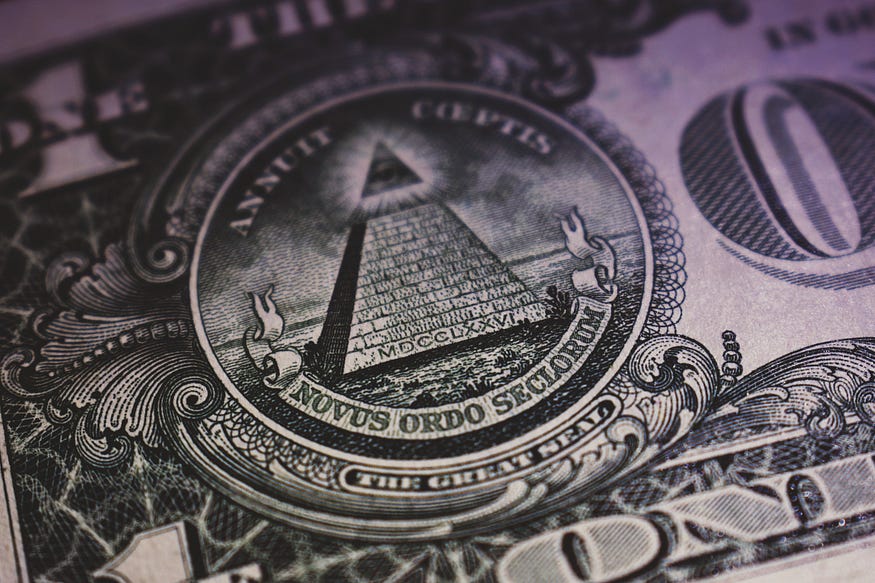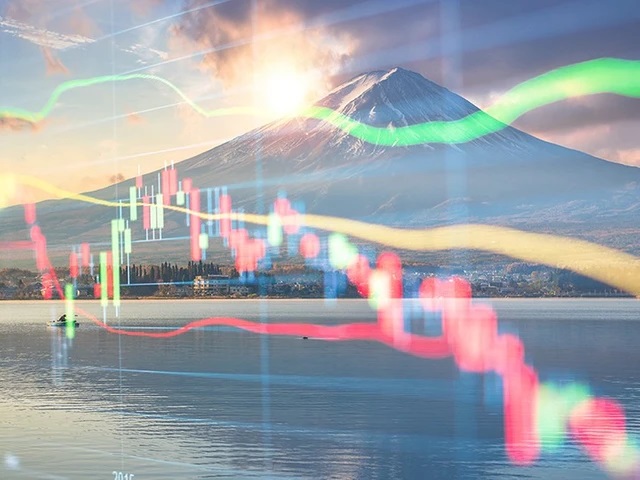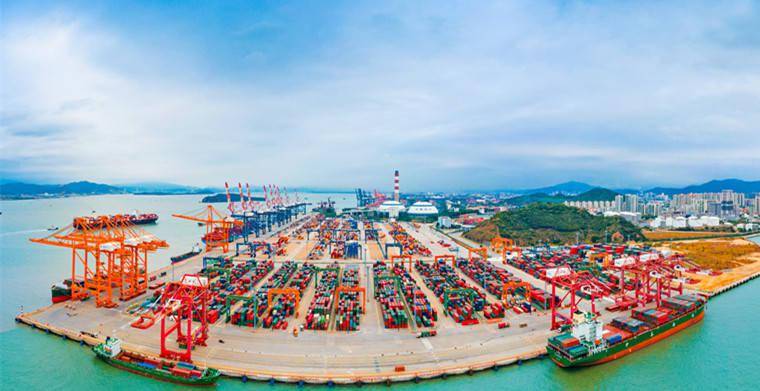“We are currently in a period of great risk,” Ray Dalio, the founder of Bridgewater Associates, warned after visiting China twice last month. He referred to the world's two largest economies and described them as “already very close to each other's red lines.”
Interestingly, just one day later, U.S. National Security Advisor Jake Sullivan delivered a speech at the Brookings Institution that showcased a significant strategic shift in the United States. His speech was interpreted by many media outlets as signaling the end of globalization, which has dominated the world economy for 40 years.
We are rapidly approaching a moment of qualitative change, and it is crucial to determine how to respond to this ever-changing era.

The movement of money around the world has always been an important observation dimension. Recently, there have been three significant trends:
- Warren Buffett has significantly reduced his holdings in BYD and TSMC, and instead increased his investments in Japan, going long on Japan's five major conglomerates. Buffett's consideration includes not only geopolitical and war risks but also a repositioning of Japan's strategic status.
- Sovereign wealth funds from the Gulf region, such as Saudi Arabia, have shown a trend of shifting from the West to the East, especially increasing their investments in China. As a major financial power in the Middle East, Saudi Arabia has its own political retaliation and long-term plans. The landscape of petrodollars is destined to undergo greater changes, making the global energy and financial systems more complex.
01 We are in a period of great risk
Sorry, I encountered an error while processing your request.

It is evident that major capital has recognized the increased risks and is repositioning its bets on the fortunes of various countries and the global trend, striving to share the dividends of the changing landscape.
On one hand, opportunities for benefiting from all sides are decreasing. Especially in matters involving core interests and industries, the world will eventually have to take sides, particularly the top capitals of the two countries. For example, Warren Buffett's exit from BYD was not because BYD was not strong enough, but because new energy has also been included in the scope of national security by the United States, determining the strategic interests of the country's future.
Yellen has recently made it clear that in the Sino-American relationship, national security is a priority, even if it has an impact on the economy. The United States has always had a very broad definition of national security interests, including not only the current ones but also those that may pose a threat to the country's dominant position in the future. The same applies to us, as we need to coordinate development with security, and development has a bottom line of safety.

On the other side, the channel dividend, front-line dividend, and backup dividend effects of major country games are gradually amplifying. A very small number of countries can enjoy the channel dividend, Singapore is already enjoying it, and Saudi Arabia also wants such a status. The front-line dividend is also a very small number of countries, Poland has enjoyed it in the Russo-Ukrainian War, and perhaps in the eyes of big capital, Japan also has such a status in the Asia-Pacific. There are relatively more countries that can enjoy the dividend in the transfer and backup of industries, from Southeast Asia, Mexico, to Japan, from low-end to mid-to-high-end.
In summary, all countries will make small calculations, and what exactly is the thinking behind the bets of big capital, which is something we need to think about carefully.

Recently, Buffett has been reducing his holdings in TSMC and BYD, while increasing his investments in Japan's five major conglomerates. This bet may last for 10 years or even longer. The 93-year-old Buffett made a special trip to Japan in mid-April this year to inspect the market. In an interview, he talked about his recent investment trends. Although everyone thinks his reasons are not so simple.
- Why reduce holdings in TSMC
He said that he considered the factors of geopolitical tensions. TSMC is very good, but he believes there are “better places” to deploy capital. His significant reduction in BYD is likely due to similar considerations. Currently, Berkshire Hathaway has reduced its holdings in TSMC by about 86% and has continuously reduced its holdings more than 10 times in the past two years. Documents disclosed by the Hong Kong Stock Exchange on May 2 show that Berkshire's current shareholding ratio is only 9.87%.
02 The chances of turning around are dwindling
2 Why Invest in Japan
Japan has become the largest investment for Warren Buffett outside of the United States. In people's impression, investment returns in Japan have always been unattractive, let alone the seemingly outdated trading companies.
Buffett's reasons are twofold. First, it is cheap, with low interest rates. Buffett's investment method is to directly issue yen bonds, borrow yen to buy Japanese stocks, which is almost the cheapest financing fund in the world, and can also avoid foreign exchange risks. The selected Japanese companies are also cheap, and in Buffett's eyes, they are already undervalued to an absurd price.
Second, it is a stable source of income. The five major trading companies are comprehensive enterprises, and their business includes energy and bulk commodities, which can bring a stable cash flow. He calculated that with this investment in Japan, he only needs a cost of 0.25% or less to achieve a 14% return, and this cost will not increase, but the returns will continue to grow due to dividends.
This is the performance of the stock prices of the five major trading companies since Buffett announced the purchase in September 2020.

Buffett is also considering further investment in Japanese stocks. Buffett is not only a participant in the market, but his large amount of capital also makes him a major creator of the market. Looking at Buffett's investment in the context of the great power game is quite interesting.
Firstly, the five major trading companies have energy commodities and military industries, which can harvest “turbulence dividends”. Look at how many energy companies' profits are setting records in 22 years. Once a conflict breaks out, the five major trading companies will be revalued and given a higher valuation. At least Buffett is very optimistic about the future development potential of the five major trading companies as import traders.
Secondly, Japan's modern industrial system (including the military production system) is relatively complete, and it can expand production at any time if the market is large enough. For the United States, it is not cost-effective to restart some mid-to-high-end industries domestically, but using Japan's physical industry as a backup and layout is a good choice.
Thirdly, there is the front-line dividend. Poland has changed its international image in the Russia-Ukraine conflict, and as the main transit country for support materials and military equipment, it has gained a lot. In the description of the situation in East Asia, the United States also views Japan in this way.

From Japan's perspective, what it desires is not for both major powers to be strong, but rather for Japan to rise amidst mutual checks and balances. Therefore, the possibility of Japan's “normalization” as a nation may increase with the probability of conflict.
03 Buffett is betting big on Japan
In the past two years, many exporters have found that it is quite profitable to earn money from wealthy investors in the Middle East. For example, in the first three months of this year, China's total exports to Saudi Arabia increased by 39.9% in US dollars. In April, The Economist published a report stating that the Gulf countries, which made a fortune in the Russo-Ukrainian War, did not show an increase in their foreign exchange reserves. So, where did the money go?
The investigation revealed that the funds returning to the West are decreasing, while more and more funds are being used to acquire foreign assets, invest in India, Southeast Asia, and China, to gain international influence, and use the profits to promote domestic construction. In China, when European and American funds withdraw due to various concerns, the Gulf investors see the vast space left by Western investors.
As a result, The Economist also believes that this will make the global financial system more complex.
The wealthy investors from the Gulf region have always been known for their generosity. In the past, they would reinvest the substantial amount of US dollars they earned from selling oil into Western countries, particularly the United States, or purchase weapons and equipment from the US, thus completing the closed loop of petrodollars. However, the cracks in the petrodollar system have been widening in recent years, especially due to factors such as the US shifting from a net oil importer to a net exporter, the irreversible trend towards carbon neutrality, the declining strategic importance of the Middle East to the US, and the current cycle of dollar repatriation that has led to a confrontation between consumer and resource countries.
To address this sense of anxiety, the Gulf countries have turned their attention to China. Recently, there has been frequent news of major project collaborations between Saudi Arabia and China. On March 26th, Saudi Aramco signed a 83.7 billion yuan joint venture agreement for a refinery in China, with plans to build a facility in Liaoning.
On March 27th, Saudi Arabia strategically invested 24.6 billion yuan in Rongsheng Petrochemical, with a premium of 88%. During the May Day holiday, Baosteel also announced the joint construction of the world's first green, low-carbon, full-process thick plate factory in Saudi Arabia with Saudi Aramco and Saudi Arabia's national sovereign wealth fund PIF. In addition, the national sovereign wealth funds of the Gulf region are also actively increasing their investments in China.
Apart from competing for more investment space from Western investors and making money in the Chinese market, countries like Saudi Arabia have absolute financial strength, resource strength, and even greater retaliation. On one hand, Saudi Arabia wants to lead the new oil world map and also wants to be the leader of the Middle East. Under the leadership of Saudi Arabia in April, OPEC united to collectively reduce production, which has a certain implication of competing with the United States. However, at the beginning of May, the price of oil has completely erased the increase after the reduction, which shows that relying solely on Saudi Arabia is not enough.

On the other side, Saudi Arabia is also eager to break away from its dependence on oil and the United States. The projects in cooperation with China include China exporting large-scale infrastructure to Saudi Arabia, making huge investments in new energy projects, and purchasing a complete set of military equipment and production lines… It is clear that Saudi Arabia needs to make early plans for the decline in US dollar credit.
This is also why Saudi Arabia wants to enter the Chinese market, as the Chinese market still offers certain returns. Of course, Saudi Arabia also has an ambition to act as a bridge between the East and the West, and to benefit from the dividends of the great power game.
04 The Middle East is adding to China
Over the past month, we have witnessed the technological shock brought by ChatGPT, followed by a series of bank failures in the United States, and then speeches by Yellen and Sullivan on the adjustment of US policy directions. The world is changing at an accelerating pace. What we need to do is to keep up with the changes, embrace the transformation, and strive to take control of the future in our own hands.








